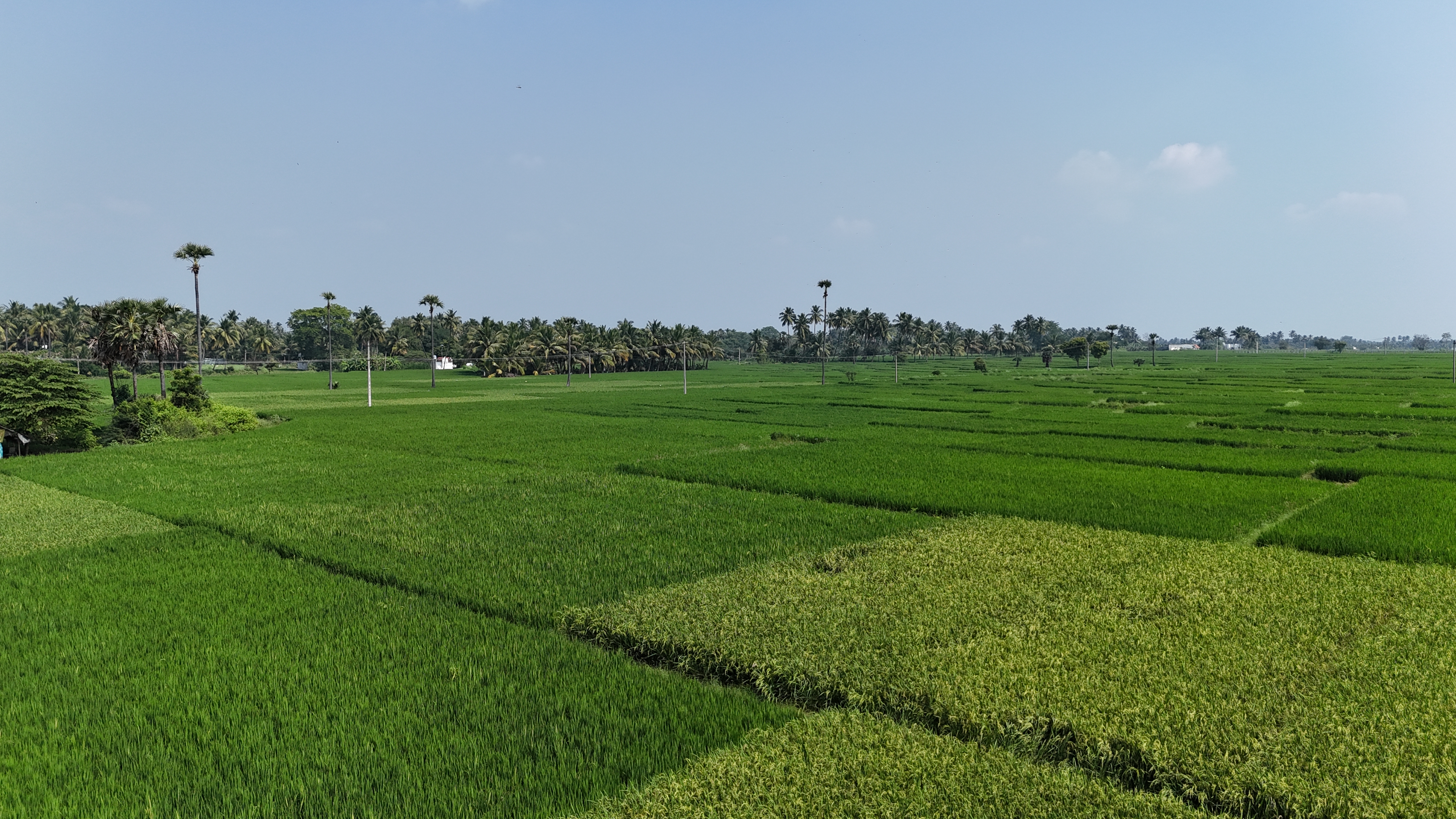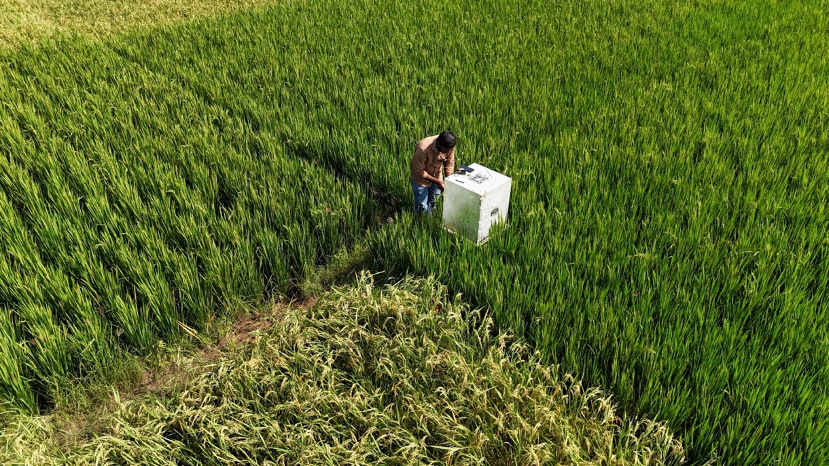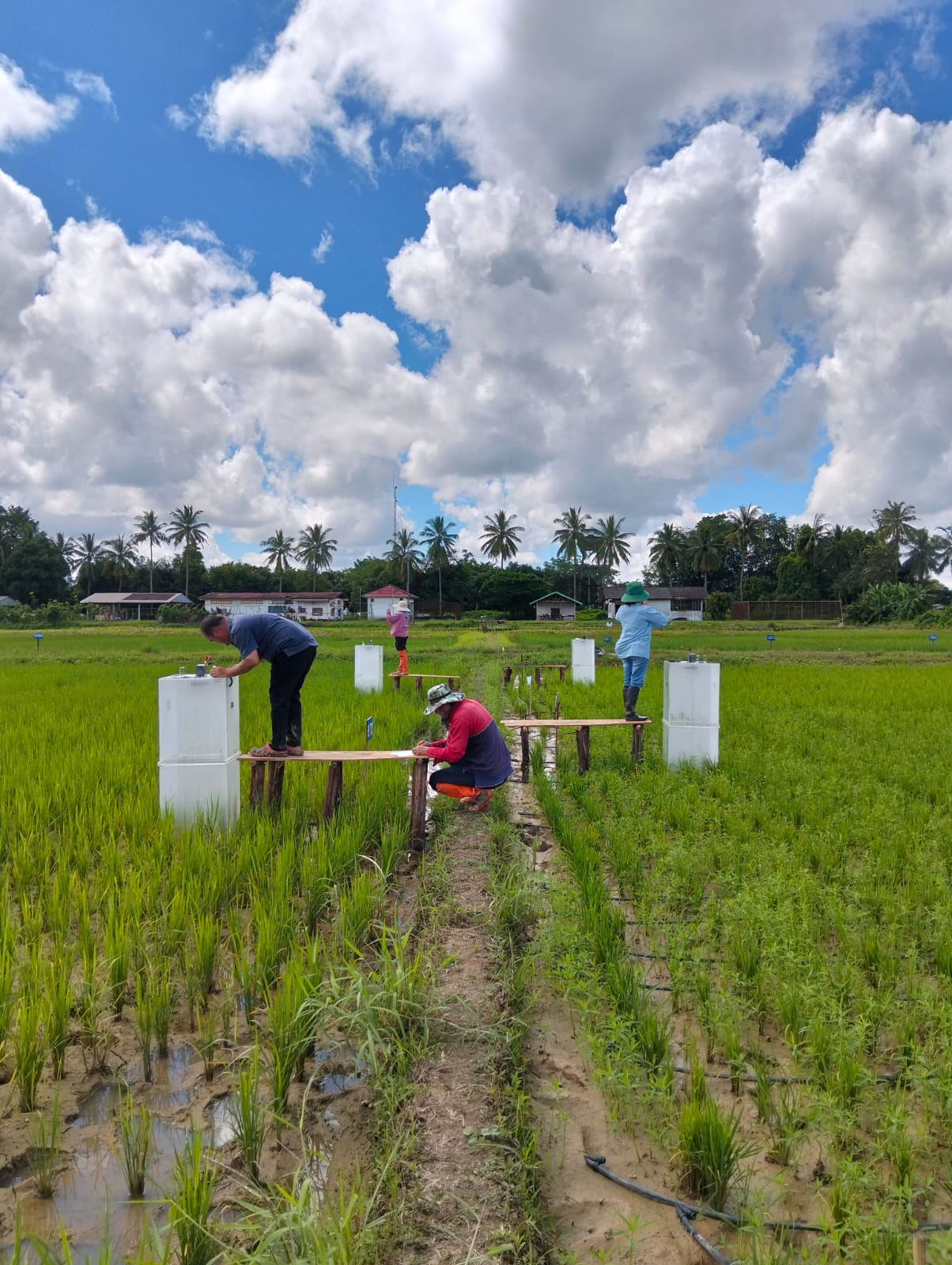Singapore, 24 January 2025 – Temasek Life Sciences Laboratory (TLL)’s groundbreaking Decarbonising Rice Project has been awarded the prestigious Giving to Amplify Earth Action (GAEA) Award in the Climate, Nature, and Resilience Science category at the 2025 Annual Meeting in Davos, Switzerland. Powered by the World Economic Forum, the GAEA Awards celebrate innovative partnerships and impactful solutions addressing global climate and nature challenges.
The award-winning Decarbonising Rice Project aims to mitigate two urgent issues of rice cultivation: its effects on climate change, and the need to meet surging global demand. Led by TLL senior investigators, Drs Srinivasan Ramachandran, Naweed Naqvi and Zhong Chao Yin, the project integrates over 20 years of research and development, scientific innovation, and collaborative partnerships to reduce methane emissions, conserve water, and enhance rice yields.
Achievements and Impact
- 30-50% reduction in methane emissions from rice fields using the integrated approach.
- 30-50% reduction in water usage, contributing to greater water conservation.
- 5-10% increase in rice yield under controlled irrigation.
- Capacity building and enhanced regional collaborations in sustainable rice production across Asia.
Mr. Peter Chia, Chief Executive Officer of Temasek Life Sciences Laboratory, expressed his gratitude for the global recognition:
"We are honoured to receive the GAEA Award, which validates the power of collaboration in advancing sustainable agricultural practices. This milestone reflects the dedication of our partners, philanthropic donors, and farming communities working together to tackle the dual challenges of climate change and food security. We look forward to scaling our efforts and continuing to drive impactful solutions for a more sustainable future."
The Dual Challenges of Rice Cultivation
Rice plays a vital role in the lives of nearly half the world’s population, particularly in Asia, where it serves as both a staple food and an economic lifeline. However, rice cultivation currently faces the escalating pressures of climate change and surging global demand. Projections indicate a 30% rise in rice demand by 2050, yet traditional farming practices are increasingly strained by extreme weather, rising temperatures, and limited resources. Compounding these issues, rice cultivation contributes approximately 10% of global methane emissions, a potent greenhouse gas that accelerates global warming. The project’s innovative approach combines:
- Climate-resilient rice varieties developed through cutting-edge molecular genetics and marker-assisted breeding.
- Water and soil microbiome management using drip irrigation and optimised fertiliser practices.
- Precise methane measurements and analytics via joint laboratories in Laos, India, and Indonesia, to monitor methane emission and refine sustainable rice cultivation.
Expanding the Project
Following the success of pilot-scale field trials, the project is now being trialed in larger acreage in Laos, India, and Indonesia. This effort will be scaled further to empower smallholder farmers with innovative technologies in sustainable low-carbon rice farming to increase productivity while reducing their environmental footprint.

Image taken in Coimbatore, showcasing Indian rice varieties in the field trials of the Decarbonising Rice project.

Aerial view of the Decarbonising Rice Project’s field trials in Coimbatore, India. Image depicts the monitoring of methane emissions for a number of rice varieties.

Field trial for the implementation of the Decarbonising Rice project in Laos. Image depicts methane collection and measurements being done by rice agronomists.
The Decarbonising Rice Project demonstrates how science-driven innovation and public-private partnerships can deliver a transformative impact on climate mitigation and sustainable agriculture. By engaging stakeholders across Asia and empowering marginalised farming communities, TLL and its partners are setting a precedent for scalable, global climate solutions.
About Temasek Life Sciences Laboratory (TLL)
Founded in 2002, Temasek Life Sciences Laboratory is a non-profit organization focusing on research in molecular biology and genetics that impacts agriculture, food, industrial biotechnology, and human health. Through innovative partnerships and sustainable solutions, TLL strives to contribute to global sustainability and economic development.
For media inquiries, kindly contact:
Tan Teng Li
Communications and Marketing Manager
Temasek Life Sciences Laboratory
Email: [email protected]

